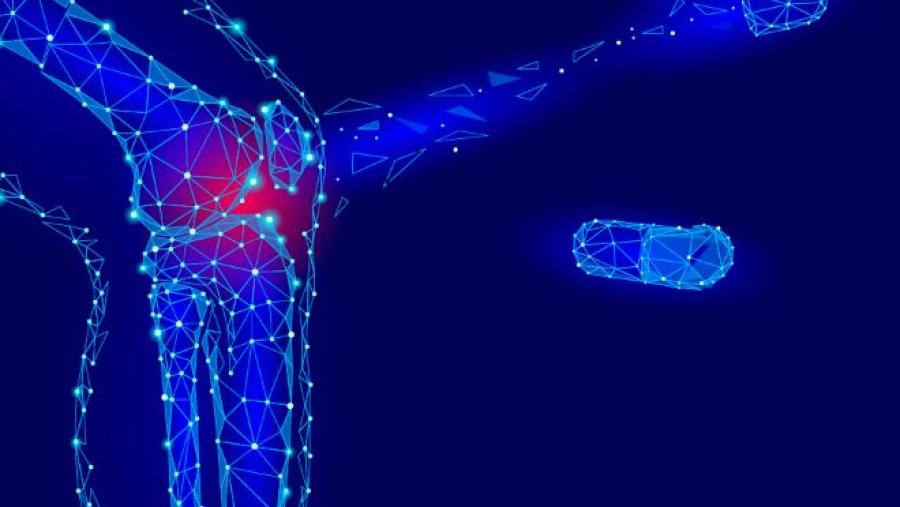Early Phase Pain Investigation Clinical Network (EPPIC-Net)
Overview
The Research Need
The Early Phase Pain Investigation Clinical Network (EPPIC-Net) seeks to enhance the treatment of acute and chronic pain and reduce reliance on opioids by accelerating early-phase clinical trials of non-addictive treatments for pain.
About the Program
EPPIC-Net has the capacity to quickly and efficiently conduct many simultaneous multisite studies. The network will conduct studies on a variety of treatments, including drugs and devices, as well as studies to better understand pain.
EPPIC-Net will:
- Test new pain treatments (e.g., small molecules, biologics, devices) with go/no-go criteria in early-stage trials to move toward efficacy trials for regulatory approval.
- Provide proof-of-concept clinical testing of potential biomarkers and new treatments to help identify specific pathways or mechanisms that hold promise for future therapeutic development.
- Validate biomarkers for utility in assessing target engagement or pain outcomes that could be used to accelerate development of new, non-addictive pain therapies.
- Develop and test innovative clinical trial paradigms to evaluate pain therapies.
- Establish well-characterized patient cohorts with specific pain conditions and clearly defined outcome measures for early-stage trials.
- Continuously learn from experience to engineer adaptive, ever-improving early-phase testing of new pain therapies.
EPPIC-Net supports clinical trials focused on:
- Investigational drugs and biologics, investigational devices, natural products, and surgical procedures for the treatment of pain.
- Deeply phenotyped patients with pain conditions of high unmet need.
- Drugs or devices with strong potential to move to industry-funded Phase 3 efficacy trials, should the early-phase study achieve the prespecified endpoints.
EPPIC-Net interfaces with the National Institute of Arthritis and Musculoskeletal and Skin Diseases’ Back Pain Consortium (BACPAC) Research Program to study how people with different types of back pain respond to specific interventions.
Open Funding Opportunities
There are no Open Funding Opportunities at this time.
Research Examples
The awards support a network to advance new treatments for pain by conducting early-phase clinical trials with adults and children. Currently funded trials include:
- In EPPIC-Net’s first Phase 2 clinical trial, researchers will test the novel oral drug CNTX-6970 in patients who experience moderate to severe knee osteoarthritis pain. Preclinical studies of CNTX-6970 have demonstrated potent analgesia in multiple pain models.
- Currently one EPPIC-Net clinical trial is underway to address diabetic neuropathy. Many patients with diabetic peripheral neuropathy find the sensory loss itself uncomfortable; however, some patients report pain due to their diabetic peripheral neuropathy, referred to as painful diabetic peripheral neuropathy. Despite the availability of off-label treatment options, many patients with diabetic peripheral neuropathy still experience significant pain, and thus more effective, non-addictive options are needed.
- One EPPIC-Net trial will further development of NRD135S.E1, an oral analgesic therapeutic candidate which has been well tolerated and shown clinically relevant benefit in early clinical studies.
Specialized Clinical Centers
- Duke University – North Carolina
- Icahn School of Medicine at Mount Sinai – New York
- Massachusetts General Hospital – Massachusetts
- Medical College of Wisconsin – Wisconsin
- Medical University of South Carolina – South Carolina
- New York University School of Medicine – New York
- University of California, San Diego – California
- University of Florida – Florida
- University of Pennsylvania – Pennsylvania
- University of Pittsburgh at Pittsburgh – Pennsylvania
- University of Rochester – New York
- University of Washington – Washington
Clinical Coordinating Center
- Massachusetts General Hospital – Massachusetts
Data Coordinating Center
- New York University School of Medicine – New York
Participating NIH Institutes, Centers, and Offices
- National Cancer Institute (NCI)
- National Center for Complementary and Integrative Health (NCCIH)
- National Institute of Arthritis and Musculoskeletal and Skin Diseases (NIAMS)
- National Institute of Diabetes and Digestive and Kidney Diseases (NIDDK)
- National Institute of Neurological Disorders and Stroke (NINDS)
Contact
Rebecca Hommer
NINDS
EPPIC-Net is NOT currently accepting new applications. Announcements regarding updates to the EPPIC-Net application process and any other relevant HEAL funding opportunities will be posted here as they become available.
View Other Research Programs in This Focus Area
- Back Pain Consortium Research Program (BACPAC)
- Discovery and Validation of Biomarkers, Endpoints, and Signatures for Pain Conditions
- Integrated Approach to Pain and Opioid Use in Hemodialysis Patients (HOPE)
- Integrative Management of Chronic Pain and OUD for Whole Recovery (IMPOWR)
- Pain Management Effectiveness Research Network (ERN)
- PRagmatic and Implementation Studies for the Management of Pain to Reduce Opioid Prescribing (PRISM)
Stay Connected
Stay up to date on the latest HEAL Initiative research advances by subscribing to receive HEAL content directly to your inbox.
 U.S. Department of Health & Human Services
U.S. Department of Health & Human Services

